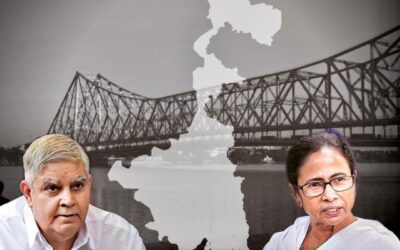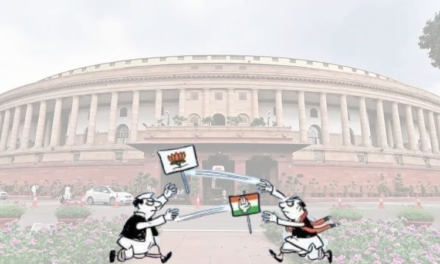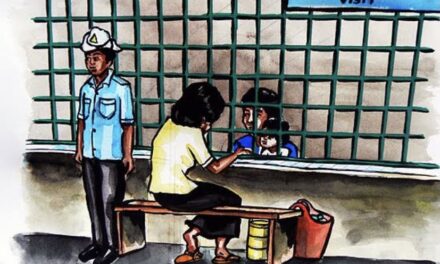The Information Technology Rules, 2021- A Constitutional Scrutiny


Harish Kugunavar
The Central Government of India in the exercise of the powers conferred under Section 87 of Information Technology Act, 2000 through a notification dated 25th February 2021 notified the Information Technology (Intermediary Guidelines and Digital Media Ethics Code) Rules, 2021 to regulate the digital media content. The rules are laid down relying on the order given in In Re: Prajwala Letter that directed the central government to frame guidelines to eliminate child pornography, rape and gang rape imageries, videos, and sites in content hosting platforms and other applications. The Rules incur liability upon intermediaries and OTT platforms if the prohibited digital content is not removed from their platforms thus depriving them of safe harbour protection provided under Section 79 of The Information Technology Act, 2000. Rule 2(i) defines ‘digital media’ means digitized content that can be transmitted over the internet or computer networks and includes content received, stored, transmitted, edited, or processed by- (i) an intermediary; or (ii) a publisher of news and current affairs content or a publisher of online curated content;
3(1)(b) provides for digital media content that is to be prohibited. The Rules encompass goodies like content classification into five age categories, parental lock and age verification mechanisms, and grievance redressal mechanisms to resolve complaints. But the IT Rules 2021 fail to fit into the scheme of the constitutional scheme in its entirety. The Rules do not concord with the golden triangle rule thus violating Articles 14, 19, and 21 of the Indian Constitution.
Rule 4(2) enables the significant social media intermediaries to trace the first originator of the information upon an order passed by a competent authority for the purpose of prevention, detection, investigation, prosecution, or punishment of an offence related to the sovereignty and integrity of India, the security of the State, friendly relations with foreign states, or public order, or of incitement to an offence relating to the above or in relation with rape, sexually explicit material or child sexual abuse material, punishable with imprisonment for a term of not less than five years. This grants these intermediaries to decode the end-to-end encryption and determine the originator of information which would amount to a violation of users’ right to privacy. This introduction of the vulnerability of tracing originator also exposes it to unauthorized access by third parties. Rule 3(1)(g) and (h) allow the intermediaries to store the information of the user for a period of 180 days which is detrimental to data protection of the users in the current data-driven society amidst lack of data protection legislative framework.
The Telecom Regulatory Authority of India(“TRAI”) also recommends that no regulatory interventions are required in respect of issues related to the Privacy and security of OTT services. The rules also fail to concur with the decision given in the case of Justice(Retd.) K.S. Puttaswamy v. UOI, which recognizes individual privacy and informational privacy as a fundamental right within Article 21. The Apex court, in this case, stated that “The right of an individual to exercise control over his personal data and to be able to control his/her own life would also encompass his right to control his existence on the internet…… The right to privacy in this modern age emanates certain other rights such as the right of individuals to exclusively commercially exploit their identity and personal information, to control the information that is available about them on the ‘worldwide web’, and to disseminate certain personal information for limited purposes alone.”
Rule 16 confers unbridled administrative discretion to the Secretary of Ministry of Information and Broadcasting to block the public access of the information without giving the publisher or the intermediary the opportunity of being heard. This uncontrolled discretion negates equal protection of the law as such power can be exercised arbitrarily so as to discriminate between persons similarly situated without reason and thus be violative of Article 14. Maneka Gandhi v. UOI laid down the proposition that the principles of natural justice are an integral part of the guarantee of equality assured by Article 14. The Apex court in District Registrar and Collector v. Canara Bank, explaining the discretionary power of an authority observed the following: “Where power granted is open to use disproportionate to the purpose to be achieved is invalid in the absence of guidelines or principles or norms which are essential for the exercise of such power.”
The rules cite maintenance of public order as a ground to remove the digital content from the online platforms and more specifically in part III of the Code of Ethics but have miserably failed to include as to what constitutes distorting of the public order. Conferring power to the administrative authority of determining public order issues would result in arbitrary exercise of discretionary power. The ambit of ‘public order’ under Article 19(2) is wide and hosts varied aspects. It was explained in the case of Dr. Ram Manohar Lohia v. The State of Bihar and Another, in the following words: “One has to imagine three concentric circles. Law and order represent the largest circle within which is the next circle representing public order and the smallest circle represents the security of the State. It is then easy to see that an act may affect law and order but not public order just as an act may affect public order but not the security of the State.” Therefore authorizing an administrative body would lead to ambiguities and might be detrimental to the freedom of speech and expression.
Rule 7 overrides the safe harbor protection accorded to the intermediaries under S.79 of the IT Act, 2000 against any third party information and incurs liability in case of failure of complying with the IT Rules, 2021. This rule is excessive and unwarranted delegation and therefore needs to be struck down as ultra vires. Any subordinate legislation that affects a radical change in the policy of the Act is excessive and can be struck down as ultra vires (RajNarain Singh v.Chairman, Patna Administration Committee).
Any State action infringing the right to privacy should qualify the test of Proportionality and Legitimacy to limit the discretion of the State. The test requires the following four ingredients to be satisfied:
- The action must be sanctioned by the law;
- The proposed action must be necessary for a democratic society for a legitimate aim;
- The extent of such interference must be proportionate to the need for such interference;
- There must be procedural guarantees against abuse of such interference;
It is prima facie evidence from the Rules 4(2), 16 of the disproportionate interference and lack of procedural guarantees failing the test. Rule 7 overrides the law under which the IT Rules, 2021 have been laid down; which is arbitrary and unwarranted by the IT Act, 2000. The rules certainly fail to fit into the scheme of the golden triangle rule. A law prescribing the procedure for depriving a person of his ‘personal liberty has to meet the requirements of Article 19 and if not shall be struck down as arbitrary under Article 14. Liberties and restrictions should run parallel to each other. One overpowering the other would distort the fair working of the constitutional machinery.
The author is a fourth-year law student at Karnataka State Law University’s Law School, Hubballi. (The opinions expressed in this publication are those of the author. They do not purport to reflect the opinions or views of The Policy Observer or our members.)
Related Articles
Privatization of Liquor: A Look Into the Loopholes of The Policy
The division of the city was done into 32 zones and licenses were based on the same. In June 2021, the tenders were issued for the application of L-7Z and L-7V licenses. The office of commission of the excise government of the national capital issued terms and conditions for the grant of licenses.
Gubernatorial impropriety
The office of the Governor is slowly and steadily being converted into an extended political branch of the central government. The scale and scope this time around are more than ever before! Are we ready for the implications this will have on National Unity and the dent it will cause to the constitutional principles of Cooperative Federalism, Constitutional Morality, and Democracy?
Supreme Court: A populist institution?
Dr. Justice D.Y. Chandrachud while overruling ADM Jabalpur v Shivkant Shukla said that:
“When histories of nations are written and critiqued, there are judicial decisions at the forefront of liberty. Yet others have to be assigned to the archives, reflective of what was, but should never have been.”








